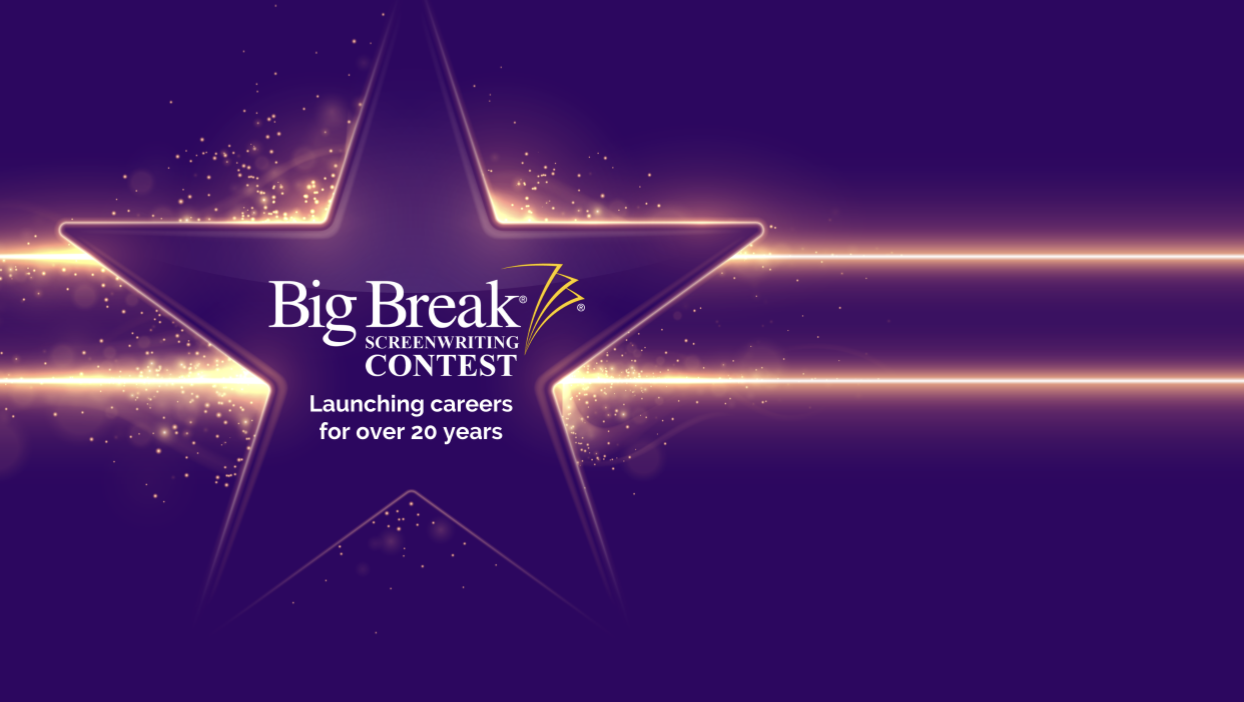Screenwriting Mentor Lee Jessup Says Entering a Competition is All About Gaining Industry Access
April 17, 2023
Lee Jessup is a career coach for screenwriters and has been mentoring winners of the Final Draft Big Break Screenwriting Competition (which is now open for entries!) for over a decade. Her experience in the industry and savvy for knowing what makes a script stand out has helped many screenwriters take their career to the next level. But not all screenwriting competitions are created equal. With the Big Break Screenwriting Competition deadline coming up, we sat down with Jessup to get her advice on what to keep in mind before you enter your screenplay in Big Break or any other competition.
When I spoke to Jessup over the phone, the enthusiasm in her voice made it clear just how much she loves her job working with screenwriters. “I absolutely adore it!” She says in an upbeat and inviting tone. Having been a writer herself many moons ago, she says she’s really inspired to have writers reach out to her. “I feel very humbled to have writers come and ask me to support them and provide them with help and guidance and advice,” she says.
Jessup knows Hollywood can be a difficult industry to navigate, so she’s built her business on helping writers develop a clear understanding of who they are as a writer and helping them communicate what they have to offer. She says the Final Draft Big Break competition can be a game changer in terms of helping a writer find their niche in the industry because it awards winners in its many genres and formats including Action/Adventure, Comedy/Rom-Com, Diversity, Sci-Fi/Fantasy and Television Pilots to name a few.
Read More: Getting Your Script Ready for a Screenwriting Contest

“One of the things that I love about the Final Draft competition is that it does have those categories so that your script won’t compete against every other script in every other genre. You can submit as a comedy writer and compete against those comedy scripts or as a thriller or horror writer and compete against those scripts,” she says.
But before you submit your script, it’s important to remember a few things.
Sweat the small stuff
Putting blood, sweat and tears into your script before submitting it to any competition sounds like a no-brainer, but apparently many writers don’t heed this advice. “It's always about putting your best foot forward,” says Jessup, adding, “If you're going put your time and resources into it, to invest money and build hopes around it – hope to place, hope to become a finalist, a category winner or a grand prize winner – you always want to know that you've done your best work.”
Something as simple as formatting can make a big difference. “I've worked with competitions before, not specifically Final Draft, but I'm thinking of a fellowship that told me that about half of its submissions were disqualified upon entry because of format issues,” says Jessup.
That’s also why it’s important to use professional screenwriting software, like Final Draft, to help make sure every word, space and slug line are in the right place. Always review the competition’s format requirements before you submit.
Read More: 5 Tips to Cinematic Formatting
“So, it may seem like a little thing, but it's very important that writers stick to the font, stick to the pagination, stick to keeping their name off the script – whatever the requirements are in screenwriting standards – it's incredibly important that writers take the time to make sure they're meeting them,” says Jessup. It’s good advice, considering at least these things are within the writer’s control.
Consider the competition’s prize package
Jessup says that when you're selecting a competition to enter, your main goal should be to choose one that gives you access to industry professionals.
“Access is really what we're looking for with a competition because competitions can serve as a conduit from the amateur space to the professional space. We look at big competitions like the Final Draft Big Break contest and the fact that the final round is judged by industry professionals – this is what I care about. I care that these writers are starting to be read by people in the industry,” she says.
And just because you may not take home the top prize, there’s still a chance your career could move forward if your script advances to the final rounds of judging.
“I've heard of a number of stories about writers who didn't win the grand prize but got signed for representation because of that final round read. So ultimately, you always want to enter competitions where their prize is not so much about monetary value as much as it is about access to the industry. Because that is the thing that can help you leap forward. It's exposure, it's access, it's relationship building, it's starting to gain interest from people in the industry,” she says.

Develop your personal narrative
One of the things Jessup does for the Big Break winners is to prepare them to engage with industry professionals. “It's all about getting ready. You've won the thing, so how are you going to present yourself? How are you going to talk about yourself? The most popular question in the industry or, directive rather, is, ‘Tell me about yourself.’ So we want to immediately start working on personal narrative, getting ready for those meetings, getting ready to talk about you.”
Know your brand
After winning that big competition, the goal is to take meetings with managers, agents, producers and studio execs. When you do, there’s no escaping that moment when they ask, “What else ya got?” Jessup says to keep your answer on brand.
“When you get signed for representation, your representative is going to look to introduce you to a potential fan base in your particular space. If you write a thriller and you get a fan base going in that space and then write a comedy, well, that's a whole new fan base. Because the companies that make broad comedies are not the same companies for the most part that make thrillers, we want you to take your lane and stick to it especially early in your career.”
So, if you won a competition with a dark thriller, be prepared to talk about the next thriller you’re working on. Seriously.
Read More: Where Are They Now: Big Break Winner Greta Heinemann Has Since Worked for NBC, Apple and Netflix
“You have to master your specific genre area. It doesn't have to be as narrow as only writing psychological thrillers all day, every day. But if you're writing thrillers, you can then lean into horror, you can lean into sci-fi thriller, you can play with it a little bit. But you want to have that as your general lane because production companies have their general lanes, producers have their individual lanes and that's who you will be introduced to. If you come to somebody who is known for producing thrillers or horror films and pitch them your small family drama, they're not going to be able to do anything with it. So, you want to build a brand that you can keep feeding into, which means that it has to be a brand that you are naturally curious about and interested in,” says Jessup.
You can learn more about Lee Jessup by visiting leejessup.com. The final deadline to enter Big Break is June 12 and the extended deadline is June 30.
Written by: Shanee Edwards
Shanee Edwards is an L.A.-based screenwriter, journalist and novelist who recently won The Next MacGyver television writing competition to create a TV show about a female engineer and was honored to be mentored by actress/producers America Ferrera. Shanee's first novel, Ada Lovelace: The Countess Who Dreamed in Numbers was published by Conrad Press in 2019. Currently, she is working on a biopic of controversial nurse Florence Nightingale. Shanee’s ultimate goal is to tell stories about strong, spirited women whose passion, humor and courage inspire us all.- Topics:
- Big Break Screenwriting Contest




